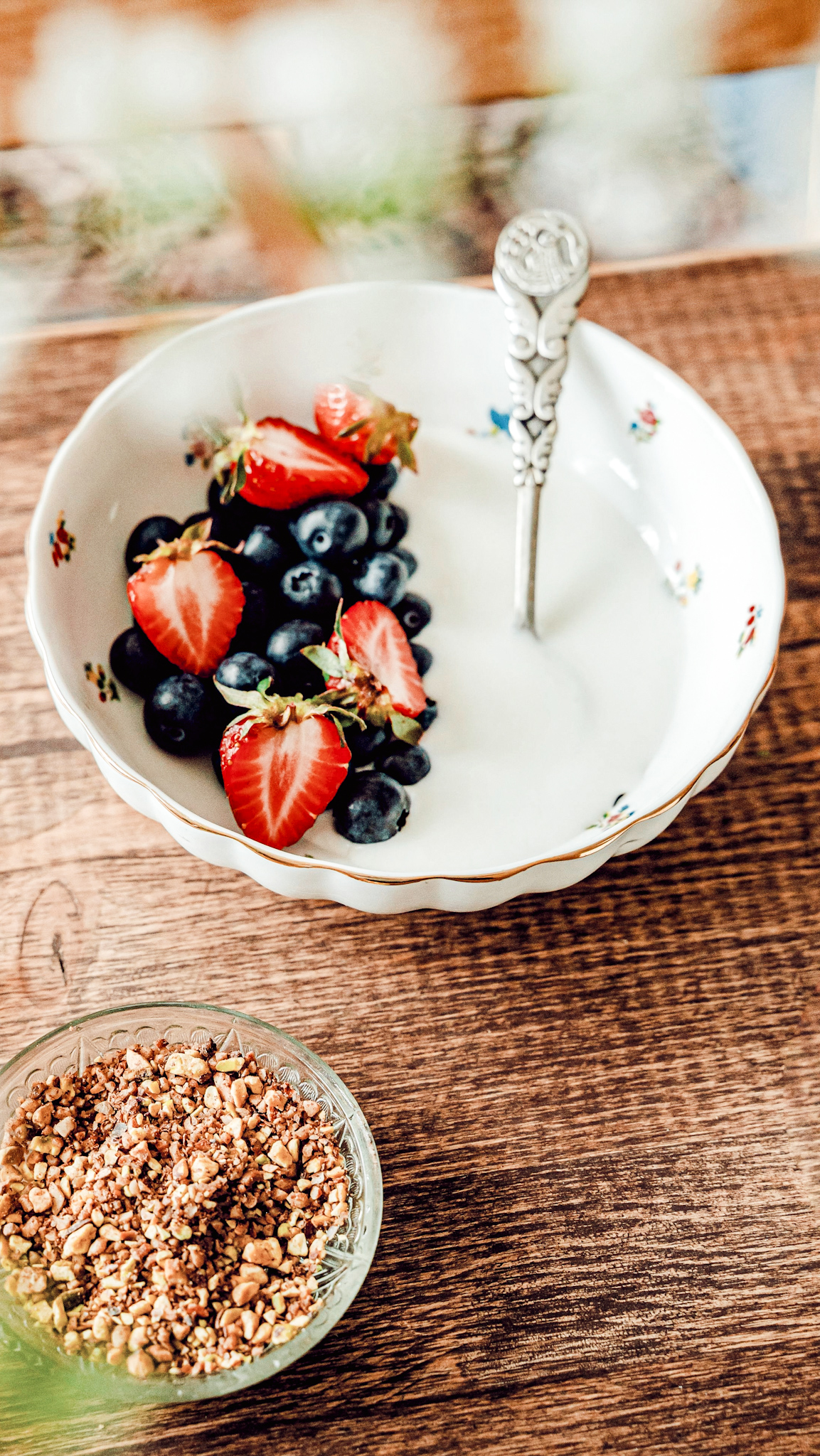Best Supplements to Improve Gut Health + Natural Support

This post may contain affiliate links, which means I may earn a small commission if you make a purchase through these links — at no extra cost to you. Thank you for supporting the content I create here on the blog! You can read my full Disclosure Policy for more details.
In this article
Your gut is more than just a digestion machine—it’s the control center for your overall health, mood, and energy levels. If you’ve been dealing with bloating, brain fog, or sluggish digestion, your gut might be sending you a SOS signal. The good news? You can give your gut some serious TLC with the best supplements to improve gut health.
From probiotics that balance your microbiome to collagen that strengthens your gut lining, the right supplements can help you feel lighter, happier, and more energized. But with so many options out there, how do you know which ones actually work? In this guide, we’ll dive into the science-backed gut health supplements that make a real difference—plus tips on how to get results naturally.
Why Gut Health Matters
Your gut is like the foundation of your entire health ecosystem. Inside your digestive tract lives a bustling community of trillions of bacteria, fungi, and other microbes—collectively known as the gut microbiome. When this community is balanced, you feel amazing: smooth digestion, glowing skin, stable mood, and strong immunity. But when things go out of whack (hello, processed foods and stress!), the results can show up as bloating, fatigue, food intolerances, or even anxiety.
Did you know? About 70% of your immune system lives in your gut. That means taking care of your gut health isn’t just about avoiding stomach issues—it’s about supporting your whole body, from your brain to your skin.
This is where the best supplements for gut health come in. Paired with a balanced diet and healthy lifestyle, supplements can help you restore microbial balance, strengthen your gut lining, and kickstart better digestion naturally.
Common Gut Health Problems
Gut issues can sneak up on anyone, and understanding the root cause can help you choose the right supplements to support your digestive health. Here are some of the most common gut health problems—and how the best supplements to improve gut health can make a difference:
1. Irritable Bowel Syndrome (IBS)
IBS causes uncomfortable symptoms like cramping, bloating, diarrhea, and constipation. Probiotics with specific strains (such as Bifidobacterium infantis) have been shown to reduce IBS symptoms by balancing gut bacteria and calming inflammation. Digestive enzymes may also ease bloating and improve nutrient absorption.
2. Leaky Gut Syndrome
Leaky gut happens when the intestinal lining becomes too porous, allowing toxins and undigested food particles to enter the bloodstream. Supplements like L-glutamine and collagen peptides help repair and seal the gut lining, reducing inflammation and promoting healing.
3. Frequent Bloating and Gas
If you often feel uncomfortable or gassy after meals, it might be due to poor digestion or an imbalance in gut bacteria. Digestive enzymes can help break down food more efficiently, while probiotics restore balance and reduce gas-producing bacteria.
4. Chronic Digestive Discomfort
Symptoms like acid reflux, indigestion, or slow digestion can be signs your gut needs extra support. Herbal supplements such as peppermint oil and ginger soothe the digestive tract and reduce discomfort naturally.
Best Supplements to Improve Gut Health
When it comes to restoring balance in your digestive system, the right supplements can work like magic. Here’s a breakdown of the best supplements to improve gut health that are backed by both science and holistic wellness experts.
1. Probiotics
Probiotics are live “good” bacteria that help rebalance your gut microbiome. They improve digestion, reduce bloating, and support immunity. Look for probiotic strains like Lactobacillus and Bifidobacterium, which are well-researched for digestive health.
- Pro Tip: Choose a probiotic with multiple strains and a high CFU count for the best results.
- Natural Sources: Yogurt, kefir, kimchi, and sauerkraut.
- Try This: Garden of Life Dr. Formulated Probiotics — it has a potent mix of strains and is shelf-stable, perfect for daily use.
2. Prebiotics
Think of prebiotics as the fuel that keeps your probiotics thriving. These plant fibers (like inulin and FOS) aren’t digested by you—they’re food for the good bacteria in your gut.
- Why You Need Them: Without prebiotics, probiotics can’t flourish.
- Best Foods: Garlic, onions, bananas, and chicory root.
- Supplement Pick: Hyperbiotics Organic Prebiotic Powder — easy to mix into water or smoothies and supports healthy gut flora growth.
3. Digestive Enzymes
If you often feel heavy or bloated after meals, digestive enzymes could be a game-changer. They help your body break down carbs, fats, and proteins, making nutrients easier to absorb.
- Who Benefits Most: People with slow digestion, IBS, or frequent bloating.
- What to Look For: A blend that includes amylase, lipase, and protease.
- Our Pick: NOW Super Enzymes — a reliable blend of essential enzymes to support digestion naturally.
4. L-Glutamine
L-Glutamine is an amino acid that strengthens and repairs the gut lining. It’s especially helpful if you’ve heard of “leaky gut” or suffer from chronic digestive issues.
- Bonus Benefit: It may also reduce inflammation in the gut.
- Recommended Brand: BulkSupplements Pure L-Glutamine Powder — pure, no fillers, and easy to add to your daily routine.
5. Collagen
Collagen peptides support gut integrity by healing and sealing the gut wall. Plus, it doubles as a beauty supplement—hello, glowing skin and strong nails!
- Pro Tip: Pair collagen with vitamin C for better absorption.
- Top Choice: Vital Proteins Collagen Peptides — grass-fed, easily dissolvable, and great for both gut and skin health.
6. Herbal Support
Certain herbs like peppermint oil, ginger, and slippery elm calm the digestive tract and reduce symptoms like gas or cramping. These are especially helpful for people with IBS.
Easy Option: Peppermint Tummydrops — gentle and effective for calming occasional digestive discomfort.
Lifestyle Habits to Improve Gut Health Naturally
Supplements are powerful tools, but they work best when combined with gut-friendly lifestyle habits. Here’s how to give your digestive system a full-spectrum boost:
1. Eat a Fiber-Rich, Whole Foods Diet
Fiber is the fuel your gut bacteria love. Aim for plenty of fruits, vegetables, whole grains, nuts, and seeds. Fermented foods like yogurt, sauerkraut, and kimchi also naturally support a healthy microbiome.
2. Manage Stress Effectively
Chronic stress can wreak havoc on your gut, slowing digestion and inflaming the digestive tract. Try mindfulness practices, yoga, or even simple breathing exercises to keep stress in check.
3. Prioritize Quality Sleep
Your gut and brain are in constant communication. Poor sleep disrupts this connection and can negatively impact your gut bacteria balance. Aim for 7-9 hours of restful sleep each night.
4. Stay Hydrated
Water helps fiber do its job and supports smooth digestion. Drinking enough water throughout the day is a simple but crucial habit for gut health.
5. Move Your Body Regularly
Exercise encourages healthy digestion and increases the diversity of your gut microbiome. Whether it’s walking, cycling, or yoga, staying active supports your gut in multiple ways.
FAQs About How to Improve Gut Health Naturally
Can I take probiotics every day?
Yes, many people take probiotics daily to maintain a balanced gut microbiome and support digestion. Daily use of high-quality probiotics with diverse strains can help improve gut health over time, but it’s important to choose products with the right CFU count and strains tailored to your needs.
Are supplements better than food for gut health?
While supplements can provide targeted support, they shouldn’t replace a balanced diet rich in fiber and fermented foods. Whole foods like yogurt, kimchi, and high-fiber fruits naturally nourish your gut bacteria and work synergistically with supplements for optimal results.
How long does it take for gut health supplements to work?
Most people start noticing improvements in digestion and energy within 2 to 4 weeks of consistent supplement use. However, full restoration of gut balance may take longer depending on individual health conditions and lifestyle factors.
Can digestive enzymes help with bloating?
Absolutely. Digestive enzymes break down food more efficiently, reducing the likelihood of undigested food fermenting in the gut, which causes bloating and gas. Taking enzymes with meals can provide relief for those who experience frequent digestive discomfort.
Is it safe to combine different gut health supplements?
Generally, combining probiotics, prebiotics, and other supplements like L-glutamine or collagen is safe and can offer comprehensive support. However, it’s best to start one supplement at a time and consult your healthcare provider to tailor a regimen suited to your specific needs.

